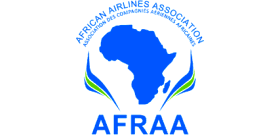 AFRAA fuel programme: half a million dollars in fuel savings for 12 African companies
AFRAA fuel programme: half a million dollars in fuel savings for 12 African companies
Fuel continues to be a key cost element in the cost structure of airlines. In 2011, AFRAA set up a Fuel Steering Committee with the primary mission of finding ways to reduce the cost burden and also address issues relating to fuel quality, taxes and charges.
Initiated by the Association of African Airlines (AFRAA), the 'Fuel Programme 2021' is expected to deliver an estimated cost savings of US$0.5 million for participating airlines for the period 2021-2022. This is according to a press release issued on Wednesday 4 August by the institution.
Within the framework of the 2021 programme, 12 airlines have committed themselves to it, namely: Air Bostwana, Air Burkina, ASKY, Astral Aviation, Kenya Airways, LAM Mozambique, Precision Air, RwandAir, South African Airways, TAAG Angola, Camair-co and Congo Airways.
According to AFRAA, "the fuel programme", which runs on an annual basis, has resulted in total savings of $55 million for participating airlines since its inception in 2012.
"The sustainability of the African airline industry is one of AFRAA's top priorities. Excessive taxes, charges and fees make African airlines less competitive as these levies have a significant impact on their financial performance. It is in this context that AFRAA is continuously establishing joint initiatives and projects for its members," commented Abdérahmane Berthé, Secretary General of AFRAA. "We will continue to facilitate beneficial cooperation between African airlines with the aim of implementing common cost-effective solutions on various aspects of flight operations. I invite more airlines to participate in the project [...] which is well aligned with the actions of Pillar 6 of AFRAA's Covid-19 recovery plan on cost management.
For Sanjeev Gadhia, CEO of Astral Aviation, "fuel is such a significant component of an airline's operating costs that intense efforts in the industry are needed to reduce these costs and improve fuel efficiency. Fuel prices in Africa have historically been 20% higher than in other regions, even though the sources and supply chains are similar. Through Astral Aviation's participation in the project, we have achieved fuel programme price competitiveness and cost reduction through lobbying efforts and economies of scale. As chair of the committee, Astral Aviation will continue to support AFRAA's coordinated efforts to achieve sustainability in the aviation industry in Africa.
The AFRAA Fuel Committee also works closely with industry stakeholders (airlines, industry associations, fuel suppliers, governments and regulatory authorities) to lobby for the reduction of high fuel taxes and charges; to address the unique fuel challenges faced by African airlines; and to build the capacity of participating members in fuel procurement and management through negotiation experts available within the membership and/or the industry.
